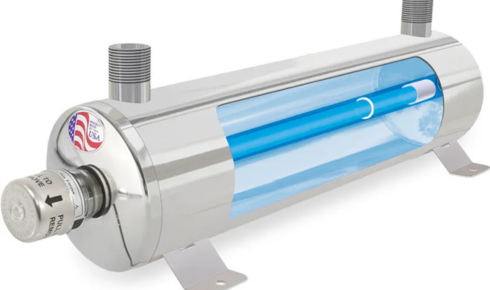There’s something almost magical about turning on a tap and having crystal-clear, safe water flow out effortlessly. We rarely think about it until there’s a problem—strange tastes, cloudy water, or worse, concerns about contamination. For those relying on well water, these worries are very real. Well water can be an excellent, natural resource, but it’s not without its challenges. Contaminants, bacteria, and other microorganisms can lurk in places you can’t see. That’s why a uv system for well water isn’t just a luxury—it’s a practical, health-conscious investment.
It’s funny, really, how water, something so essential, is often neglected until it becomes a noticeable issue. Suddenly, every sip, every shower, every laundry load makes you think twice about what’s flowing into your home. And the solutions today are smarter and more eco-friendly than ever before.
Understanding the Basics: Why Well Water Needs Extra Care
Well water is drawn straight from underground aquifers, which sounds pristine—but “natural” doesn’t always mean “safe.” Depending on your location, wells can carry bacteria, viruses, and other microorganisms. Seasonal runoff, local wildlife, and even old pipes can introduce risks that municipal water systems are designed to handle.
A well water UV system uses ultraviolet light to disinfect the water, rendering harmful microorganisms inactive. Unlike chemical treatments, it doesn’t change the taste, smell, or color of your water. Instead, it acts like an invisible shield, silently safeguarding your home’s water supply. The peace of mind that comes with this level of protection is something families, especially those with kids or immunocompromised members, find invaluable.
How a UV System Works
If you’re curious about the mechanics, it’s surprisingly straightforward. Water passes through a chamber where a UV lamp emits light at a specific wavelength. This light penetrates microorganisms’ cells, disrupting their DNA so they can’t reproduce. It’s not just filtering water—it’s neutralizing potential pathogens before they even reach your glass.
Unlike filters that trap particles or chemical treatments that alter water chemistry, UV systems are non-invasive. They preserve the natural composition of your water while providing an extra layer of security. And, unlike some other treatment methods, UV systems are virtually maintenance-free—just occasional bulb replacements and cleaning to keep it running optimally.
Real-Life Benefits Beyond Safety
Of course, safety is the primary concern, but there are other perks that make a uv system for well water worth considering. Water treated with UV tends to maintain its natural taste and clarity, so coffee, tea, and cooking come out better. Dishes sparkle, laundry feels softer, and showers are more pleasant without the faint chemical taste or odor that can accompany chlorine or other disinfectants.
There’s also a psychological comfort. Knowing your water is treated continuously, silently, and effectively removes a layer of anxiety from daily life. It’s subtle, but it changes the way you feel about a basic, everyday necessity. Something as simple as filling a glass of water becomes a small act of reassurance rather than a potential gamble.
Comparing Treatment Options
Many well owners wonder if UV treatment is necessary, or if other methods—like chemical disinfection or traditional filtration—are enough. The answer often depends on your water’s specific qualities. Sediment filters are great for particles but won’t kill bacteria. Chemical treatments can be effective but may leave an aftertaste or require ongoing monitoring.
UV systems complement these approaches beautifully. They’re not necessarily a replacement for sediment or carbon filters but work alongside them to provide comprehensive protection. For instance, pairing a well water uv filtration system with a pre-filter ensures both particle removal and pathogen deactivation, giving you clean, safe water from every faucet.
Maintenance and Longevity
One of the biggest advantages of a UV system is simplicity. Unlike some high-tech water systems with complex maintenance schedules, UV units are straightforward. The UV lamp has a rated lifespan—usually around 9,000 to 12,000 hours of operation—after which it should be replaced. Periodic cleaning of the quartz sleeve is all that’s required to maintain peak performance.
This minimal maintenance is ideal for busy households. There’s no mixing chemicals, no complicated monitoring, and no frequent replacements of entire systems. Once installed, a UV system tends to be a “set it and mostly forget it” kind of upgrade—reliable, effective, and unobtrusive.
Environmental Considerations
For environmentally conscious homeowners, UV systems are especially appealing. Unlike chemical treatments that can generate waste or require transport and storage, UV uses electricity and a long-lasting lamp. It’s a low-impact solution that reduces dependency on bottled water, lowering plastic waste and your household’s overall environmental footprint.
When paired with efficient pre-filtration, you also avoid unnecessary water waste, which is a problem with some other water softening or treatment systems. Essentially, it’s a smart, sustainable solution for those who want clean water without compromise.
Local Considerations and Water Testing
Every well is different, and water quality can vary even from neighboring wells. That’s why testing is critical before choosing any treatment system. A professional water test identifies bacteria, viruses, sediment levels, and chemical contaminants. From there, you can design a system tailored to your home’s needs, whether that’s UV treatment, pre-filters, or a combination of methods.

